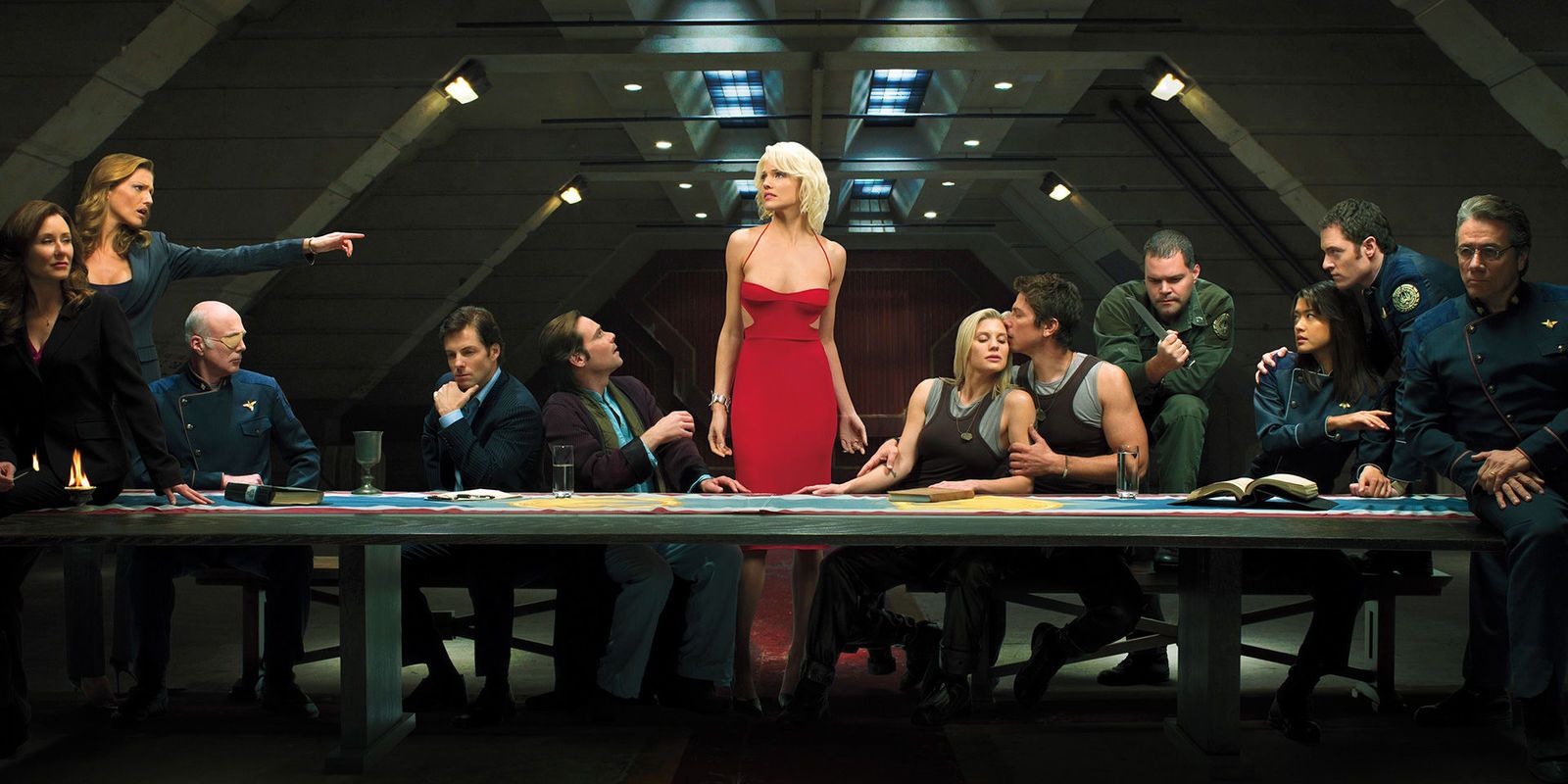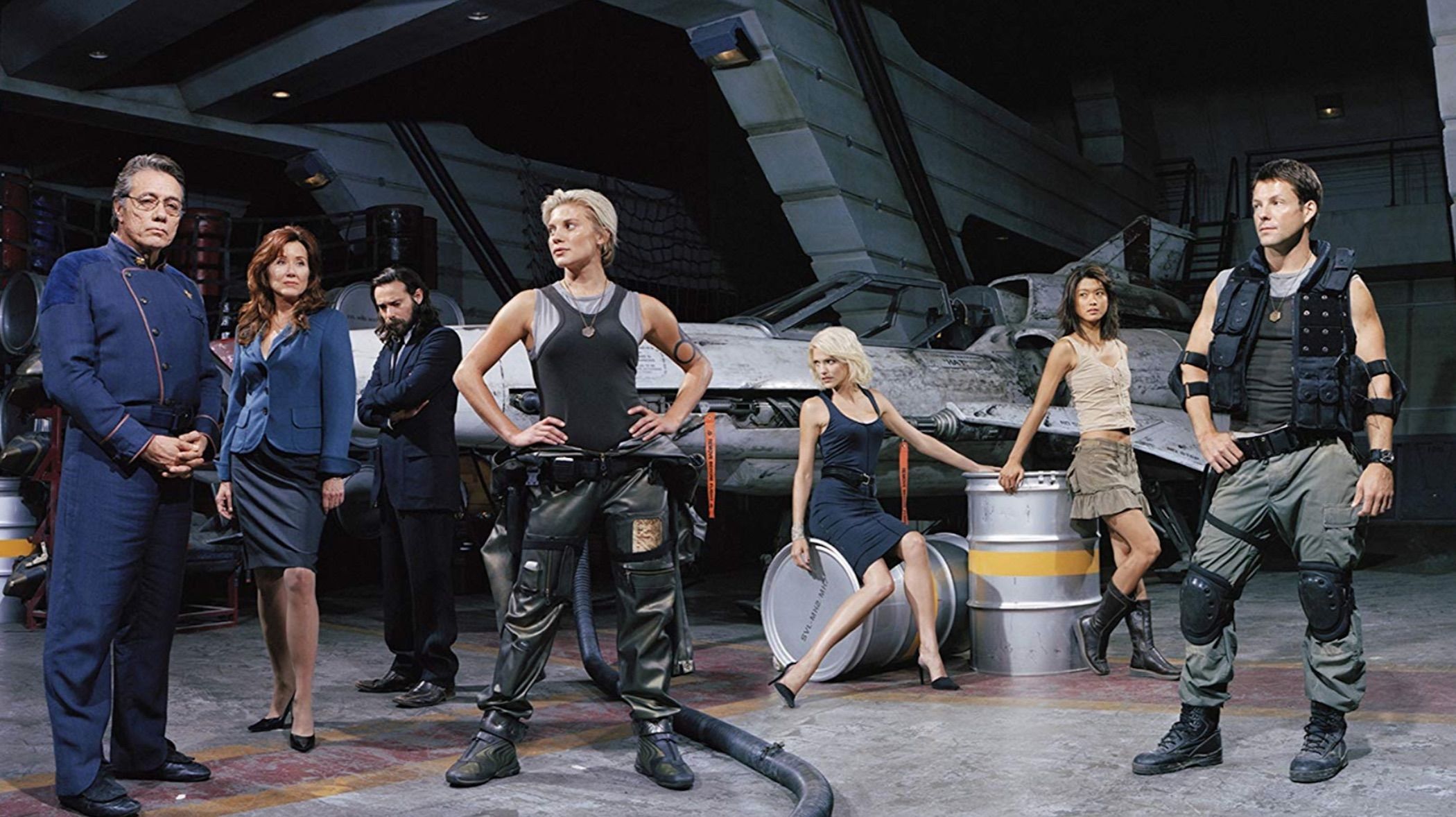The rebooted Battlestar Galactica was one of Syfy's biggest success stories, putting the channel on the map for quality television programming and paving the way for prestige television. It also helped usher in an era in which science fiction programming, particularly of the "space and robots" variety, could become more mainstream.
Even more iconic and much more successful than the original series, the show's hit status wouldn't keep it from delivering the ultimate disappointment in its fourth season. This came in the form of the show's series finale, which was notoriously bad in the eyes of its most loyal fans. While not as controversial as say, the final episode of Game of Thrones, it was certainly despised by viewers none the less. This finale failed due to a combination of poor storytelling, unanswered questions, and a very literal deus ex machina. Here's how Syfy's star show completely fell apart in its final episode.
Daybreak
The series' final episode, the third in the three part "Daybreak," had the humans finally emerging victorious in their battle against the mechanical Cylons. Unfortunately, the Galactica itself had received tremendous damage and was at risk of being sucked into a black hole. Starbuck's response was to enter a set of musical notes into the ship's navigation, which were actually the coordinates to a habitable planet called Earth. It's revealed that the humans who then settle there are humanity's ancestors, with their progeny, modern day human civilization, posing the same risk of being dominated by technology. Starbuck is also revealed to be an angel who serves a higher power, and the events of the show were apparently all part of God's plan.
Why It Was Controversial
The series had been known to touch on themes of fundamentalism and philosophy, but the overt religious elements in the finale were a bridge too far for many fans. Ideas of God and literal spirituality had never really been a part of the series, and the entire set of events supposedly being part of God's plan was the epitome of a deus ex machina. The revelation that Starbuck, who had previously died and subsequently returned under mysterious circumstances, was an angel only added fuel to the fire. To be fair, the original Battlestar Galactica (1978) had religion as a rather prominent theme, due to it being inspired namely by Mormon theology. This wasn't the case with the reboot, however, rubbing fans the wrong way.
There were also several questions left unanswered from the rest of the series, as well as new problems created by the finale. For instance, Hera was revealed to be the "Eve" of the human race on Earth, but the identity of her accompanying Adam was not revealed. There's also the question of how the crew of the Galactica were so easily able to reject their technological advancements, not to mention how the traces of these technological artifacts were able to be completely forgotten without a trace throughout time.
Likewise, the actual ultimate goals of the Cylons are never revealed, with the "God's plan" theory doing nothing to help illustrate. Other questions about the Cylons, like how "love" is the secret ingredient needed to allow human and Cylon procreation, is never explained in full either. Add in the fact that so much of the last episode is expository rather than visual, and the result was an incredibly poorly received and controversial ending to one of the 2000s most landmark science fiction shows. Hopefully, the upcoming reboot will be able to more consistently showcase high quality and not phone things in at the ending.



